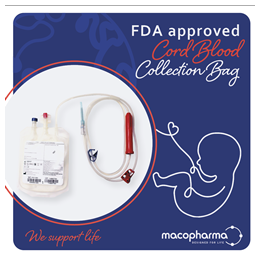Jste zde
Reducing Teen Pregnancy: Tips for Parents

Recent reports show that teen pregnancy and births in the U.S. have reached an all-time low, so it's tempting for parents, healthcare providers, and community leaders to think, "problem solved!" and move on to another issue. But here is the reality: Approximately 750,000 teen pregnancies occur annually in the U.S., and roughly one in three teen girls gets pregnant before age 20.
The term "teen pregnancy" doesn't begin to convey the cascade of public health and social problems that occur when teen girls get pregnant. Teen pregnancy is the leading cause of high school dropout among girls. And, according to The National Campaign to Prevent Teen and Unplanned Pregnancy, about 25% of teen mothers go on welfare within three years of their child's birth, often relegating themselves, and their children, to a life of poverty.
A host of health problems associated with teen pregnancy, including a higher rate of preterm birth and low-birth-weight babies for teen moms, accompanies these social ills.
But there is good news. Parents strongly influence their teens, and play a key role in reducing teen pregnancy by helping their teens make healthy, responsible, and values-based decisions about sex.
The following tips are excerpted from my book, Before It's Too Late: What Parents Need to Know About Teen Pregnancy and STD Prevention. This list gives you some ideas to think about and say to yourself even before you talk to your child. As a prepared parent, you'll be more effective in guiding your teen.
7 Things to Tell Yourself
- I don't have to be perfect.
Parents often tell me that they fear "getting it wrong" if they talk to their kids about sex. Here is what I tell these anxious parents: You don't have to be an expert to communicate effectively. Demonstrate a caring attitude, and you're more than halfway there. If you say something that doesn't sound quite right to you, you can always clarify your comments later. - I have multiple opportunities to get my points across to my teen.
It's important to avoid trying to say everything you want to get across in one session or "The Talk." Teens - and parents - cringe at the thought of "The Talk". Your goal should be to have many conversations about sexual issues, some planned, but many impromptu. Be alert for teachable moments and use them wisely. - I am approachable.
Think about the traits that would make it easier for your child to approach you with concerns about sexual health and relationships. In my seminars and talks with teens over more than two decades, teens consistently say that they rate these approachable traits highest: nonjudgmental outlook, good listener, warm and calm demeanor, lighthearted approach, and open-mindedness. - I remember my teen years.
Even under the most ideal circumstances, talking with your teen about relationships, dating, or sex, can be a little awkward. Accept that your teen might feel uncomfortable, and don't let that stop the conversation. Think back to your teen years and how you would have felt during such conversations. - Shorter can be better.
Your conversations with your teen don't have to be formal or lengthy to be helpful. For example, making a brief comment about a teen romance scene you both viewed on television can get your point across about what you feel is appropriate behavior for teens in a dating relationship. - Don't assume anything.
I've heard parents make comments like, "Oh no, my daughter's not having sex - she doesn't even have a boyfriend." What that parent might not realize is that her daughter may have participated in oral sex at a party last weekend. Don't be afraid to ask your child, "Have you felt pressure to have sex or even had sex?" - I communicate love and concern.
Your teen is very special to you, and you want the very best for him or her. Your teen needs to feel this and to hear this as often as possible. Teens who feel loved by their parent(s) are less likely to engage in risky sexual behavior.


